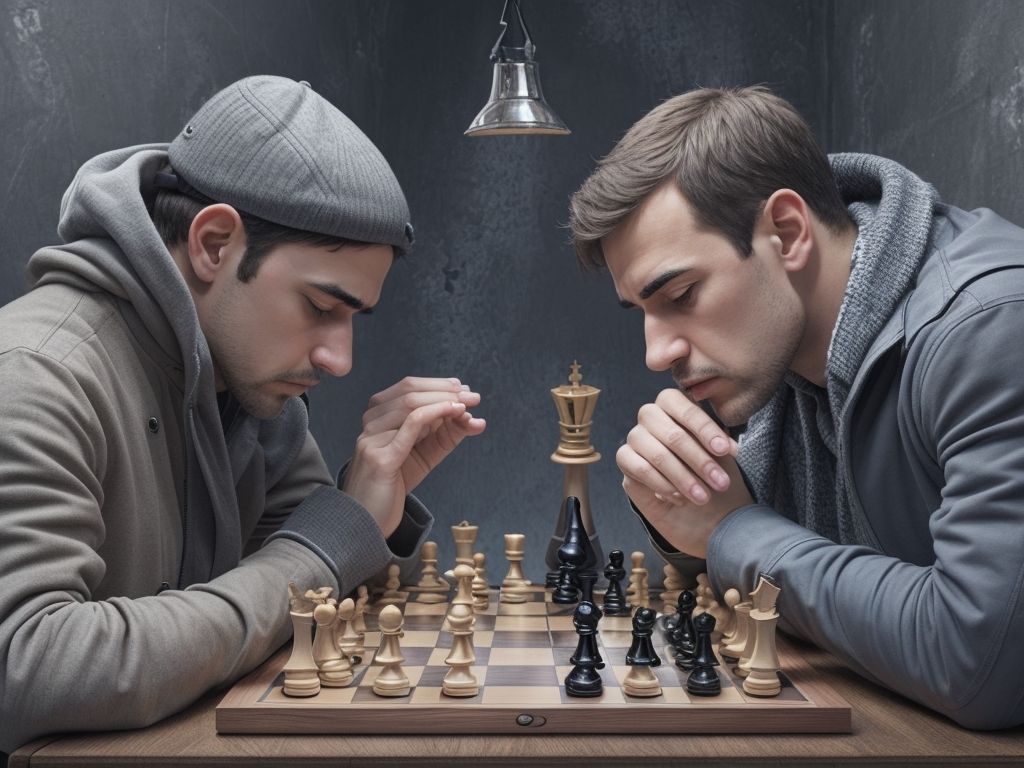Should I Quit Chess
Choosing to quit chess can be a serious decision for any player. It is an issue that often comes up when players have difficulties or when goals don’t fit with the competitive arena. Before making this big decision, it is important to think about many factors.
One factor is the amount of pleasure gained from playing chess. If the game doesn’t bring joy anymore, it could be time to consider quitting. It might help to check if there are other activities or hobbies that could bring the same satisfaction.
Another point to think about is the dedication needed to get better at chess. It takes lots of effort and time to get better. As players become better, they need to put in more work to stay on top.
It is also important to look at long-term goals in chess. Do you want to be a professional? Is chess just something to do for fun? Knowing ambitions can help decide if quitting is the right thing.
Grandmaster Magnus Carlsen said, “In order to be a world champion, you must sacrifice everything.” This highlights the dedication needed to become a great chess player.
To conclude, deciding to quit chess requires careful consideration of factors like enjoyment, dedication, and goals. Doing this can help players make the right decision about their chess journey.
Reasons to Quit Chess
Chess players may ponder if they should carry on playing. Here are several reasons to quit:
- No progress: Despite effort and practice, improvement or success may be missing.
- Time commitment: Chess takes up a lot of time and dedication.
- Burnout: Too much chess engagement can lead to exhaustion.
- Limited opportunities: It’s hard to become a pro player or make money from chess.
- Changing priorities: Life progresses, so priorities shift.
- No enjoyment: If chess doesn’t bring joy anymore, explore other activities.
However, each person’s path is unique. Think about what counts for you before deciding.
Quitting chess may seem like the end, but new chances can arise. Consider using the strategy and critical thinking skills gained from chess in other ways.
Don’t be afraid to miss out on finding new interests and abilities beyond chess. Venture into exciting unknowns! To those who relate to any of the reasons, consider your journey and make the choices that fit your personal growth and joy.
Reasons to Continue Playing Chess
Chess is an exciting and rewarding game with many benefits! It can improve cognitive abilities, concentration, creativity, resilience, and even foster a sense of community. Plus, it encourages self-discipline and good time management.
This beloved game has a long history, dating back to ancient India. It was then known as chaturanga, before evolving into shatranj and eventually becoming the modern game of chess we know today.
Chess is a timeless pastime that’s captivated millions worldwide. It offers intellectual challenges, as well as chances for personal growth and enjoyment. So, why not give it a try?
Analyzing the Pros and Cons
Weighing the pros and cons, quitting chess could give you a chance to explore new interests and spend more time with friends.
But, it’s important to be aware of the consequences – decreased mental stimulation and missing out on the competitive challenge.
Before making a decision, think about if chess is still your passion, what your long-term goals are, and other ways to stay mentally stimulated. This will help you make an educated choice.
Personal Reflection and Decision Making
Chess requires much reflection and decision-making. We may ask ourselves, “Should I quit chess?” Reasons vary, such as lack of progress, waning interest, or time limitations. Before we make a choice, we should explore our thoughts and feelings.
Why did we start playing chess? Was it the challenge of competing? Maybe it’s the strategic and analytical skills we build? Knowing why we play can aid our decision-making.
We can also assess our progress and accomplishments. Have we hit a wall or are there still opportunities to improve? Taking an objective look can help us decide.
History teaches us about reflection and decision-making. Garry Kasparov, one of the greatest chess players, faced IBM’s Deep Blue supercomputer in 1997. Despite losing, Kasparov didn’t give up. He was determined to understand the potential of human intellect with computer help.
Conclusion
Quitting chess can be tough to decide. You need to think about your love for the game, goals, and if you’re happy with your achievements.
Chess has many advantages. It teaches you to think tactically, improves problem-solving skills, and boosts concentration. It also builds patience, perseverance, and grit.
Evaluate if you still find joy in chess. If you don’t enjoy it or are tired of practice and tournaments, you may want to stop. It doesn’t mean you wasted time. It gives you a chance to follow other passions that could bring more joy.
Anna K., an experienced chess player, chose to quit. At first, it seemed wrong. But, she then found art. She was pleased with her newfound creativity and self-expression, which made her very happy.
